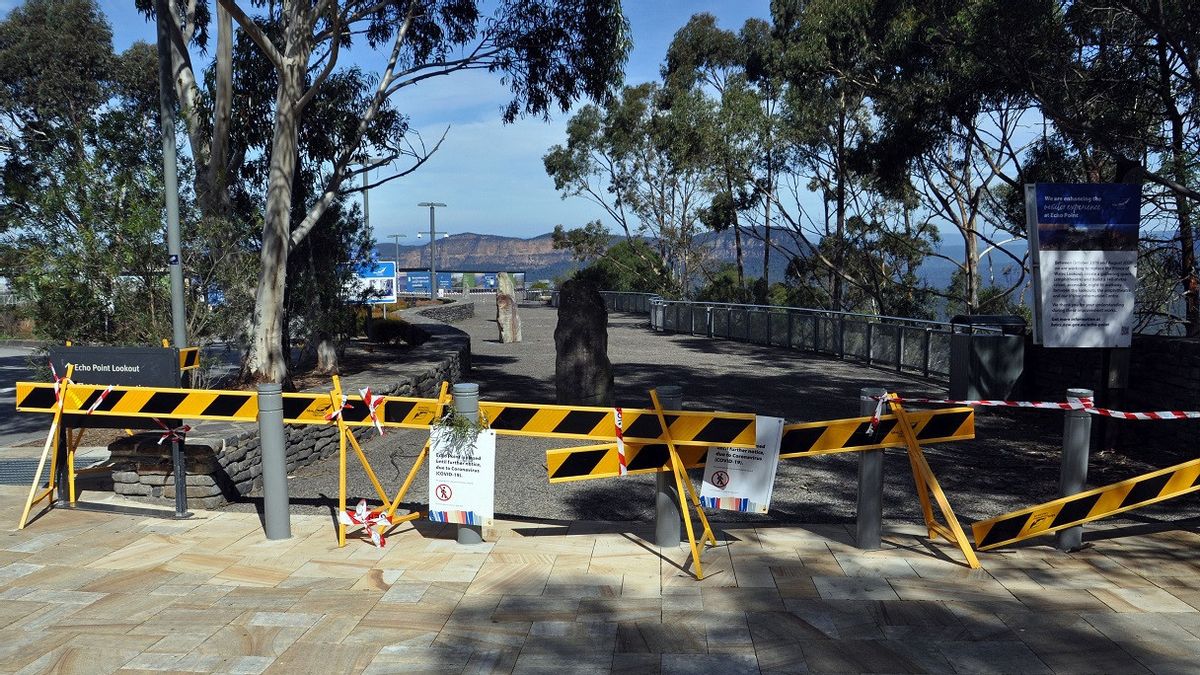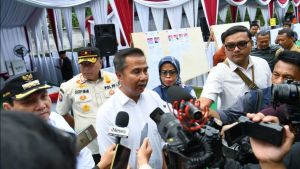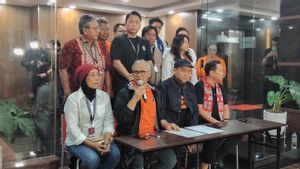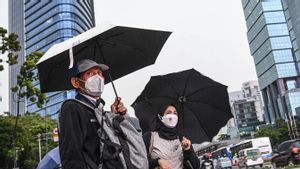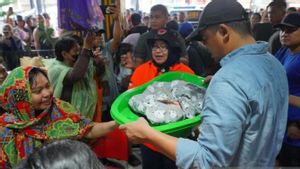JAKARTA - Sad news came from Australia, as the country reported its highest record daily COVID-19 infection case in 16 months in the State of New South Wales.
This condition opens the opportunity for strict restrictions that will expire on July 30 in the country, to be extended again, in contrast to neighboring Victoria State which is preparing to lift restrictions.
More than half of Kangaroo Country's population of 26 million people have been subjected to stringent restrictions in recent weeks, as the outbreak of the Delta variant of COVID-19 in the New South Wales capital, Sydney and spread to three states that directly border.
In New South Wales, local health authorities reported 172 cases of COVID-19 in the past 24 hours, the highest in 16 months with 60 of them spending time in the community. The day before, the state reported 145 cases of infection.
New South Wales Prime Minister Gladys Berejiklian said a decision on whether the restrictions would be extended or not would be taken this week. However, with less than 13 percent of the state's population already vaccinated, restrictions are likely to be extended.
"We know we've worked hard for five weeks and we don't want to waste all the good work we've done, by opening up too early and then the virus spreading again," Berejiklian told a conference.

In contrast to New South Wales, neighboring Victoria, which has been under strict restrictions since July 15, plans to lift most of the restrictions from Wednesday, after registering only 10 cases of infection in people already quarantined.
"Overall, it's been a good day," Victoria State Prime Minister Daniel Andrews told reporters in Melbourne.
Victoria's 5 million residents will now be allowed to leave their homes freely and schools will reopen, although households will not be allowed to receive visitors.
Separately, South Australia also announced plans to lift its lockdown on Wednesday, after recording zero new cases of COVID-19 infection in the past 24 hours.
The restrictions over the past few weeks have increased Australia's chances of a second recession in recent years, although Finance Minister Josh Frydenberg said it was too early to talk about a recession.
However, last week Frydenberg estimated the Australian economy would shrink by A$2 trillion, or around US$1.5 trillion, with restrictions costing A$300 million a day.
To note, rapid contact tracing, strict social distancing rules and lockdowns have helped Australia keep the COVID-19 rate low throughout last year and early this year.
Launching Worldometers, Australia recorded a total of 33,266 cases of COVID-19 infection, with 184 declared dead, as well as 992 deaths and 29,856 people being cured.
The English, Chinese, Japanese, Arabic, and French versions are automatically generated by the AI. So there may still be inaccuracies in translating, please always see Indonesian as our main language. (system supported by DigitalSiber.id)
